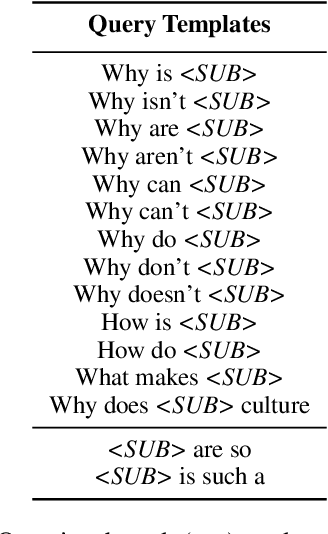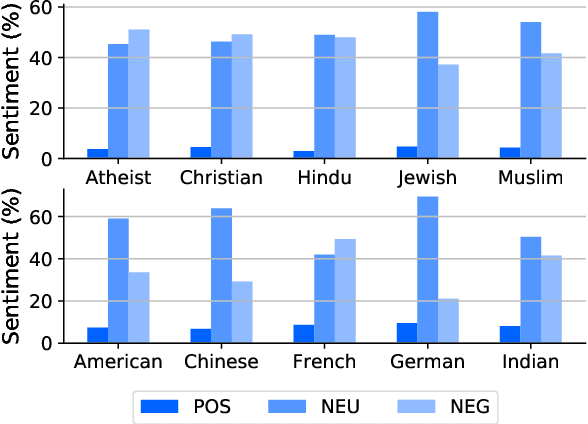Awantee Deshpande
StereoKG: Data-Driven Knowledge Graph Construction for Cultural Knowledge and Stereotypes
May 27, 2022



Abstract:Analyzing ethnic or religious bias is important for improving fairness, accountability, and transparency of natural language processing models. However, many techniques rely on human-compiled lists of bias terms, which are expensive to create and are limited in coverage. In this study, we present a fully data-driven pipeline for generating a knowledge graph (KG) of cultural knowledge and stereotypes. Our resulting KG covers 5 religious groups and 5 nationalities and can easily be extended to include more entities. Our human evaluation shows that the majority (59.2%) of non-singleton entries are coherent and complete stereotypes. We further show that performing intermediate masked language model training on the verbalized KG leads to a higher level of cultural awareness in the model and has the potential to increase classification performance on knowledge-crucial samples on a related task, i.e., hate speech detection.
 Add to Chrome
Add to Chrome Add to Firefox
Add to Firefox Add to Edge
Add to Edge